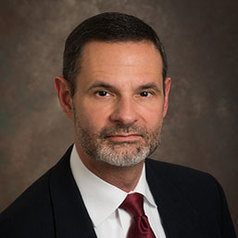
James Kendra
Director, Disaster Research Center and Professor, Public Policy & Administration, University of Delaware
Research interests include community resilience and recovery, emergency planning, crisis management, and organizational improvisation and resilience.
Conversant on topics such as disaster planning, coastal hazards, technology in emergency management and risk perception and communication.
Has published articles and made presentations about emergency response to disasters including: the Indian Ocean tsunami, the September 11th World Trade Center terrorist attacks, Hurricane Katrina, and Hurricane Sandy
Co-author of American Dunkirk: The Waterborne Evacuation of Manhattan on 9/11, Temple University Press
Less ![]()
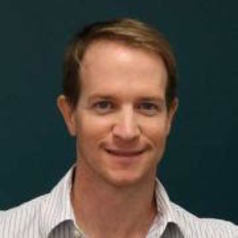
James Kerry
Adjunct Senior Research Fellow, James Cook University, Australia and Senior Marine and Climate Scientist, OceanCare, Switzerland, James Cook University
James is an Adjunct Senior Research Fellow at James Cook University, Townsville, Australia. He completed his PhD in marine biology at James Cook University in November 2015, under the supervision of Prof. David Bellwood. James coordinated the National Coral Bleaching Taskforce from 2015-2019, when he moved to the Great Barrier Reef Marine Park Authority as a Deputy Director. In 2022, James moved to Switzerland where he works on science and policy for an international oceans NGO; OceanCare.
Less ![]()
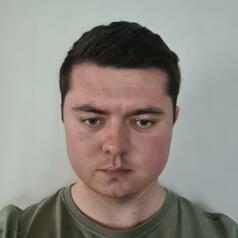
James Kinsella
PhD Researcher in Finance, University of Bath
James has a keen interest in Emotional and Behavioural Finance frameworks. He mainly focuses on the psychological and emotional implications of investors' investment decision-making processes through analysis of volumetric expression. He also has a passion for Elliott Wave theory and works as an associate tutor at the university.
Less ![]()
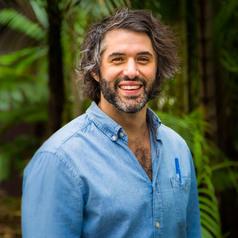
James Kirby
Associate Professor in Psychology, The University of Queensland
James N. Kirby, Ph.D., is an Associate Professor, Clinical Psychologist, and the Co-Director of the Compassionate Mind Research Group at the University of Queensland. He has broad research interests in compassion, but specifically examines factors that facilitate and inhibit compassionate responding. He also examines the clinical effectiveness of compassion focused interventions, specifically in how they help with self-criticism and shame that underpin many depression and anxiety disorders. James also holds a Visiting Fellowship at the Center for Compassion and Altruism Research and Education at Stanford University and is an Honorary Member of the Compassionate Mind Foundation UK. In 2022 he authored Choose Compassion, and in 2020 he co-edited Making an Impact on Mental Health. He serves as an Associate Editor for two international journals Mindfulness and Psychology & Psychotherapy: Theory, Research & Practice.
Less ![]()
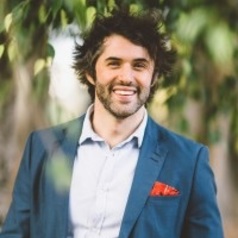
James Kirby
Research Fellow in Clinical Psychology, The University of Queensland
I received my PhD in the field of clinical psychology from The University of Queensland. My PhD involved developing and evaluating a new version of the Triple P-Positive Parenting Program for grandparents. My research is now focused on examining the role of mindfulness and compassion in enhancing nurturing family environments.
I am also a Clinical Psychologist and work in private practice at Psychology Consultants where I practice compassion focused therapy.
Less ![]()
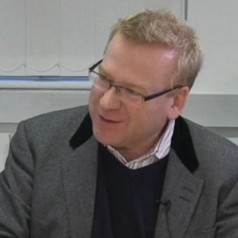
James Knowleds
James Knowles specialises in early modern literature and culture (1500-1700) and has published widely on early modern drama especially Jonson, Marlowe, Marston, Middleton, and Shakespeare. He is an internationally recognised expert on the court masque and civic pageantry and has written on literary and cultural geographies, orientalism, patronage and collecting, manliness and sexuality, verse libel and manuscript culture. He also retains a wider interest in gender, sexualities, and book culture including modern and contemporary gay writing and queer theory.
Research area(s):
Renaissance literature and culture, esp the court masque and civic pageantry, city comedy, revenge and political drama
Caroline and civil war writing
Literary and cultural geographies and orientalism, early modern Irish and Scottish cultures
Patronage and collecting, esp libraries
Manliness, sexualities and book culture including modern and contemporary gay writing and queer theory
Book and manuscript culture, verse libels and literary circulations, censorship, and textual editing
Less ![]()
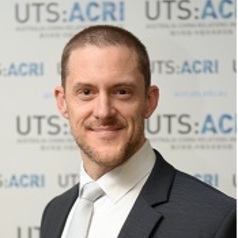
James Laurenceson
James Laurenceson is currently Deputy Director and Professor at the Australia-China Relations Institute (UTS), University of Technology, Sydney. He has previously held appointment at the University of Queensland, Shandong University (China) and Shimonoseki City University (Japan).
His research focuses exclusively on the Chinese economy and has been published in international, peer-reviewed journals such as China Economic Review, China Economic Journal, Journal of Chinese Economics and Business Studies and China and World Economy.
The Australia-China Relations Institute (ACRI) at the University of Technology, Sydney, was launched by Foreign Minister Julie Bishop in May 2014. The Director is former Foreign Minister Bob Carr. The aim of ACRI is to illuminate the bilateral relationship across political, economic, cultural and other dimensions.
Less ![]()
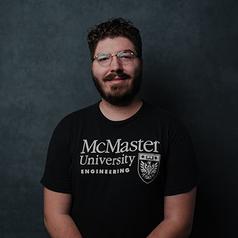
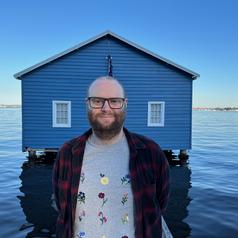
James Lloyd
Research Fellow, ARC CoE Plants for Space, School of Molecular Sciences, The University of Western Australia
I am a geneticist in the School of Molecular Sciences, University of Western Australia and the Australian Research Council's Centre of Excellence in Plants for Space. I am interested in how genes and turned on and off within an organism, initially to understand how the natural processes first evolved, but I now engineer new ways to turn genes on and off in plants in a field known as Synthetic Biology.
Less ![]()
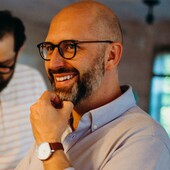
James Magnus-Johnston
Chair, Political Studies, Canadian Mennonite University; PhD Researcher, McGill University
Less ![]()
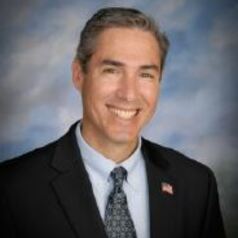
James Martinez
Assistant Professor of Educational Leadership, University of Tennessee
Dr. Martinez's 30+ years of instructional and leadership experiences include roles in public, private, parochial and boarding school environments. He currently serves as an Assistant Professor in the Department of Educational Leadership and Policy Studies, a Division of the College of Education, Health, and Human Sciences at the University of Tennessee, Knoxville. After working for six years for Rockwell International as a systems engineer on the Space Shuttle Main Engines, Dr. Martinez changed careers and became a classroom teacher for seventeen years. He was fortunate to teach at all levels during these years, from kindergarten to 12th grade. Between 2007 and 2012, he served as a school administrator in both elementary and secondary schools in the Southern California area. As a faculty member, Dr. Martinez prepares future school leaders and develops intervention research studies to support early career teachers/administrators with their efforts to increase student success in Science, Technology, Engineering and Mathematics (STEM). Dr. Martinez completed his bachelor's degree in Mechanical Engineering from Stanford University in 1988, his master's degree in Educational Leadership from California State University, Channel Islands in 2009 and his doctoral degree in Educational Leadership from California Lutheran University in 2015.
Less ![]()
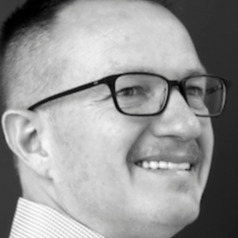
James Mcauley
Professor of Psychology, UNSW Sydney
Professor James McAuley is a psychologist in the School of Health Sciences. He completed his PhD at Brunel University UK in 2002 and took a post-doctoral position at the University of Sydney in 2004 and then a senior post-doctoral position at the George Institute for Global Health in 2008. He moved to NeuRA in 2010 and established the Centre for Pain IMPACT and was appointed to the department of Exercise Physiology, School of Medical Sciences in 2017.
James’ research combines experimental, clinical and translational methods to develop and test new interventions to manage low back pain. James has published >200 articles and holds over >$10M in research funding. He is regularly invited to give talks at conferences and scientific meetings. James has supervised 18 PhD students and mentored 4 postdocs.
James is the chair of the back pain group of SPHERE MSK and is a member of the Scientific Advisory Group (SAG) for the Australian and New Zealand Musculoskeletal Clinical Trials Network (ANZMUSC). In 2015 James founded the NSW network for pain PhD students/ECRs (SPRiNG). James has supervised 18 PhD students and mentored 4 postdocs.
Less ![]()
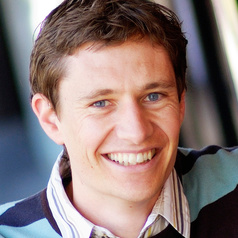
James McCaw
Associate Professor in Mathematical Biology, University of Melbourne
James McCaw is a mathematical biologist and epidemiologist and an Australian Research Council Future Fellow (2011 – 15) at the University of Melbourne. After obtaining a PhD in theoretical physics in 2005, he turned his interests to a recognised needs area in Australia – mathematical modelling of infectious diseases to inform public health policy. He now holds a teaching and research position split between the School of Mathematics & Statistics and the Melbourne School of Population and Global Health. He also holds an honorary appointment at the Murdoch Childrens Research Institute. James’ interests range from the application of mathematics to problems in basic biology through to multi-scale integrated health policy analyses.
Less ![]()
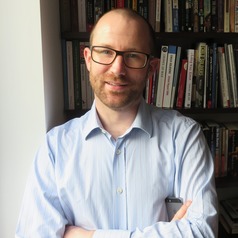
James Mehigan
James Mehigan is a lecturer in criminology at the Open University and a barrister at Garden Court Chambers.
As a lecturer his research interests include policing, prisons, human rights and criminal law. As a barrister he has acted in numerous high profile appeals and inquests and specialises in criminal defence, prison law, inquests and human rights. He is called to the bars of England & Wales, Ireland and Northern Ireland.
He is a trustee of the UK branch of Front Line Defenders, a NGO that focuses on the protection of human rights defenders at risk around the world.
James is a former member of the Independent Monitoring Board at Pentonville Prison.
Less ![]()

James Miller
Senior Lecturer, School of Creative and Cultural Industries, Kingston University
My areas of research include: connections between contemporary literature and critical theory; connections between literary form and technology; the impact of socio-economic and political events on the novel and narrative fiction, experimental fiction, pastiche, parody, blending and complicating genre boundaries.
I am a novelist and Senior Lecturer in Creative Writing and English Literature. Since 2018 I've been course leader for the MA and MFA in Creative Writing.
I am the author of the novels LOST BOYS (Little Brown 2008) and SUNSHINE STATE (Little, Brown 2010) and most recently UNAMERICAN ACTIVITIES (Dodo Ink 2017) and STRAYS (Haverthorn 2017) a collaborative work of experimental poetry based on my debut novel. I've also written numerous short stories and articles which have been published in various journals, websites and anthologies. I have a PhD in American literature from King's College London on the African-American author James Baldwin and the connection of his work to Civil Rights and post-colonial discourse.
I'm also a founding member of Writers Rebel - we publish work about the climate and ecological emergency at www.writersrebel.com - and organise literary events that are also non violent direct actions with Extinction Rebellion. I also help run the Twitter for Extinction Rebellion UK.
Less ![]()
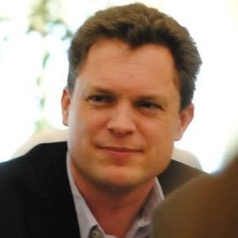
James Morley
James Morley is a Professor of Economics and the Associate Dean (Research) of the Business School at the University of New South Wales. He received his PhD from the University of Washington in 1999. Before moving to Australia in 2010, he was a faculty member at Washington University in St. Louis (1999-2010) and a Research Fellow at the Federal Reserve Bank of St. Louis (2004-2010). He has worked regularly with the forecasting firm Macroeconomic Advisers and has held a number of visiting positions, including at the Bank of Canada, Bank Negara Malaysia, and the Bank for International Settlements Asian Office in Hong Kong. He recently served as the President of the Society for Nonlinear Dynamics and Econometrics (2011-2014) and is a founding member of the Shadow RBA Board (2011-), an Academic Fellow at the Reserve Bank of New Zealand (2014-), and Co-Editor of The Economic Record (2015-). His research has been published in many top academic journals and focuses on the empirical analysis of business cycles, stabilization policy, and sources of persistent changes in macroeconomic and financial variables.
Less ![]()
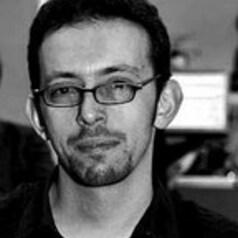
James Morrison
Associate Professor in Journalism, University of Stirling
I am an Associate Professor in Journalism at University of Stirling and hold a PhD in Media and Communications, a PG Dip in Journalism Studies from Cardiff University and a BA Honours Degree (2.1) in Archaeology from University of York. My PhD thesis (published by Palgrave Macmillan as the monograph Familiar Strangers, Juvenile Panic and the British Press) focused on the interplay between news media portrayals of children and young people as victims and threats and parental and juvenile attitudes towards risk. The focus of my current research is on the intersection between media and political discourses, social attitudes and the lived experiences of people from marginalised groups - primarily those experiencing economic and intersectional disadvantages. Prior to becoming a lecture in 2003, I worked for a decade as a professional journalist - starting on local newspapers but ending my full-time reporting career as a specialist writer for the Independent on Sunday.
Less ![]()
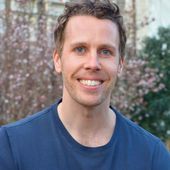
James Muldoon
Associate Professor in Management, University of Essex
I am a Reader (Associate Professor) in Management at the Essex Business School, a Research Associate at the Oxford Internet Institute and Head of Digital Research at the Autonomy think tank.
My research examines how modern technologies such as artificial intelligence and digital platforms can create public value and serve the common good. It explores how notions of freedom, power and democracy need to be rethought in a digital age and what we can do to harness the positive potential of new technology.
Less ![]()
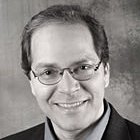
James N. Friedman
James N. Friedman is Chief Business Development Officer and has been with FX Bridge since 2002. Mr. Friedman is a graduate of the University of Rhode Island with a BS in Industrial Engineering and an MBA in business management. He brings technology and marketing experience from Digital Equipment Corp., Software AG, and SBC Communications. In addition, he has held NASD Series 3 and Series 30 licenses with National Futures Association in United States.
Less ![]()
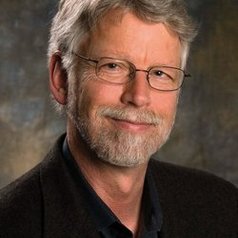
James N. Gregory
Professor of History, University of Washington
James Gregory is a Professor of History and former Harry Bridges Chair of Labor Studies at the University of Washington. His research and teaching center on these aspects of 20th century United States history: (1) labor history, particularly the history of American radicalism; (2) regionalism, both the West and the South; (3) race and civil rights history; (4) migration, especially inside the United States.
His prize-winning books include "The Southern Diaspora: How The Great Migrations of Black and White Southerners Transformed America" and "American Exodus: The Dust Bowl Migration and Okie Culture in California"
His current work explores the political geography of the American Left and includes the online Mapping American Social Movements project http://depts.washington.edu/moves/
In addition, he is active in the field of digital and public history, directing a set of online projects focused on the labor and civil rights history of the Pacific Northwest. http://depts.washington.edu/labhist/
He currently serves as president of the Labor and Working Class History Association.
Less ![]()

James Newman
Senior Lecturer in Sport and Exercise Psychology, Sheffield Hallam University
James is an international recognised researcher in safeguarding and welfare in professional football.
He also holds the following qualifications:
Chartered Psychologist with the British Psychological Society (BPS)
Sport and Exercise Psychologist in Training with the British Association of Sport and Exercise Sciences (BASES)
Doctor of Education
MSc Sport Psychology
BSc (HONS) Sport and Exercise Science
Less ![]()
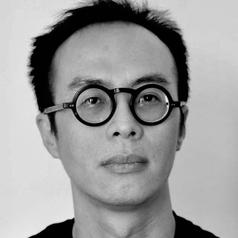
James Nguyen
Lecturer in Fine Arts, Monash University
I have a Phd from UNSW currently being published into a book on the topic of reclaiming diasporic language and performance as a form of dynamic resistance and community building. In addition of a Masters of Fine Arts from the University of Sydney (2014), and a Bachelor of Fine Art (hons.) from the National Arts School (2012), I was a Fellow at UnionDocs Centre for Contemporary Documentary Arts in NYC (2016).
I also have exhibited at major galleries and institutions in Australia and overseas, and currently developing a major solo show at the Australian Centre for contemporary Art (ACCA) in September 2023.
Less ![]()
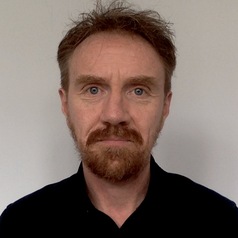
James Nicholls
Senior Lecturer in Public Health, University of Stirling
James Nicholls is a substance use researcher with a specialism in alcohol and drug policy. He has written extensively on the history of drinking cultures and their relationship to policy, and on the role of regulation in shaping outcomes for both alcohol and other drugs. He has previously acted in an advisory capacity to the UK Government, sitting on the Public Health England Alcohol Leadership Board and coordinating the All Party Parliamentary Group on Alcohol Harm. As Chief Executive Officer of Transform Drug Policy Foundation, he worked with partners across the globe to explore pathways to drug policies that could better promote human rights, public health and social justice. He is now a Senior Lecturer in Public Health at the University of Stirling.
Less ![]()
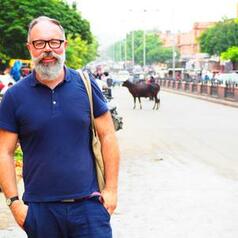
James Nott
Lecturer, School of History, University of St Andrews
I am a social and cultural historian specialising in twentieth-century British history. I pioneered the social and cultural history of social dancing in Britain and my most recent monograph was the first history of dance halls in Britain. Going to the Palais: A Social and Cultural History of Dancing and Dance Halls in Britain, 1918-60 (OUP, 2015) won widespread critical acclaim from reviewers and is due to be re-issued in paperback in 2020. I also wrote Music for the People: Popular Music and Dance in Interwar Britain (OUP, 2002) (awarded proxime accessit to the Whitfield Prize by the Royal Historical Society) the first academic history of the British popular music industry in the 1920s and 1930s. I also co-edited Classes, Cultures and Politics: Essays on British History for Ross McKibbin (2011), also published by OUP.
I am currently working on a second history of popular music in interwar Britain and on anti-Soviet propaganda in twentieth century British popular culture. My next book publication will be a global history of the interwar dance craze which I am working on with Klaus Nathaus of the University of Oslo.
Reviews:
Going to the Palais
A 'monumental book...The depth of research, sources, and critical reflection... marks it out as a classic.' Keith Gildart, Journal of Modern History
'a landmark study ... Going to the Palais stands as an exemplary work of social and cultural history' - Peter Bailey, American Historical Review
'In its range of topics, density of assembled evidence and consistent, subtlety of argument, this book is set to become the definitive account of dance halls in 20th century Britain.' - Jeffrey Richards, History Today
Less ![]()
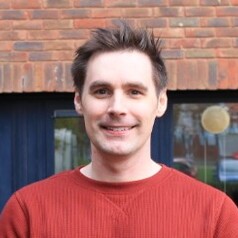
James O'Donoghue
Research Associate Professor in Planetary Astronomy, Meteorology, University of Reading
I'm a planetary scientist specialising in ground-based astronomy of giant planet upper atmospheres, in particular Jupiter, Saturn and exoplanets. My research involves learning to understand how planets interact with their environments. The upper atmospheres are affected greatly by powerful auroras at the magnetic poles (much like the "northern lights" on Earth), or from storms like Jupiter's Great Red Spot and even by Saturn's rings which "rain" icy dust onto the planet.
In my spare time I make videos which explain the scales, motions and mechanisms of the solar system and beyond (available here), which have over 200 million views across all platforms, hundreds of news articles and are used in schools, universities, planetariums and museums worldwide. For this outreach work I was awarded the 2021 Europlanet Society Prize for Public Engagement.
Less ![]()
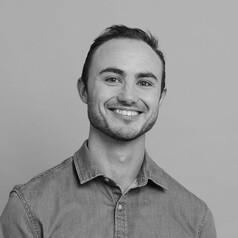
James Overs
Research Assistant, Swinburne University of Technology
I am a Research Assistant based at Swinburne University of Technology, Melbourne, Australia, working for Associate Professor Simon Knowles. I recently completed my Bachelor of Psychological Sciences (Honours), exploring the factors which influence mental health outcomes for individuals with gastroparesis. I am passionate about promoting greater understanding and awareness of the mind-body connection and the importance of holistic approaches to health and mental health. I intend to undertake future study with the hope to improve the lives of those with chronic health and mental health issues.
Less ![]()
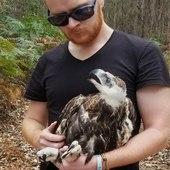
James Pay
Postdoctoral Research Fellow, School of Natural Sciences, University of Tasmania
Less ![]()
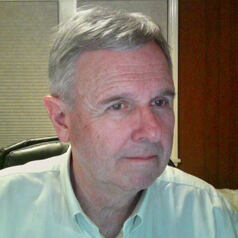
James Phillips
Research Associate Professor of Head and Neck Surgery and Director of UW Medicine’s Dizziness and Balance Center, University of Washington
James O. Phillips, Ph.D., is a UW research associate professor of Head and Neck Surgery, adjunct research associate professor of Speech and Hearing Services and director of UW Medicine’s Dizziness and Balance Center.
Dr. Phillips feels the UW provides an extraordinary environment for research, teaching and clinical practice where he can participate in translational research, study motor and sensory function in humans and use basic biological models. He also thinks it is pretty great that he can see patients in the clinic and teach undergraduates, graduate students and residents and collaborate with some of the finest researchers in the world.
Dr. Phillips earned his Ph.D. at the UW. He has an extensive research program that includes affiliations with the UW's Human Interface Technology Laboratory, the UW Autism Center, Virginia Merrill Bloedel Hearing Research Center, the Center for Integrative Brain Research at Children's Hospital and the Washington National Primate Research Center.
Less ![]()
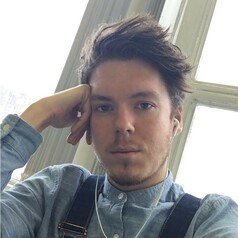
James Pickles
Senior Lecturer, University of Brighton
James Pickles is a Criminologist at the University of Brighton at the School of Humanities and Social Science. After undertaking a Masters of Research in Social Sciences, he completed his PhD at Northumbria University in 2018 through a funded studentship. James has published his work in well established international journals such as Policing & Society, Journal of LGBT Youth, Qualitative Research, and International Review of Victimology. Alongside publishing empirical data he has also published methodological commentaries on ethical research.
James' research focuses on violence against minority communities, specially anti-LGBT+ 'hate' crime. A former youth worker who has run several youth groups across the North East of England, he is particularly interested in how young people access support for their experiences of victimisation and violence.
Less ![]()

James Pikul
Associate Professor of Mechanical Engineering, University of Wisconsin-Madison
Less ![]()

James Renton
I am interested in racism, especially antisemitism and Islamophobia; Empire; and the genealogy of global politics. My research focuses on European ideas of the Jew, the Arab, and the West; post-secularism; British and French colonialism in the Jewish and Middle Eastern worlds; the First World War and its afterlives; the Zionist-Palestinian conflict; the League of Nations Mandate system; the West and the Middle East relationship; and the political public sphere in the colonial world after 1914.
My first book, The Zionist Masquerade: The Birth of the Anglo-Zionist Alliance, 1914-1918 (Palgrave Macmillan, 2007), was a new history of the Balfour Declaration. Placing the Declaration within the wider story of the global politics of race and nationalism in the Great War, the book put forward a new interpretation of its origins, purpose and significance.
I am currently writing a biography of the idea of the Middle East, for which I was awarded an Early Career Fellowship by the Arts and Humanities Research Council. With Ben Gidley (COMPAS, Oxford), I am also co-editing a book on antisemitism and Islamophobia in Europe, from the Crusades to the 21st century.
Outside of the academic world, I have written for Ha’aretz, openDemocracy, The Conversation, The Jewish Quarterly and Teaching History, and regularly give public talks. On television, I have featured in programmes including ‘Al-Nakba: The Debate’, which focused on the British role in the history of the Zionist-Palestinian conflict, ‘World War I through Arab Eyes- Episode 3: The New Middle East‘, and ‘The Grand Mufti’, a documentary about the Palestinian leader Muhammed Amin al-Husayni.
I am a committee member of the British Association for Jewish Studies, an Honorary Senior Research Associate in the Department of Hebrew and Jewish Studies at University College London, and a Fellow of the Royal Historical Society. I am also a member of the History & Policy Network, and the chair of ErRS: the Ethnicity, Race, and Racism Seminar at Edge Hill. In 2015, I organised the ErRS symposium ‘Islamophobia and Surveillance: Genealogies of a Global Order’.
Less ![]()
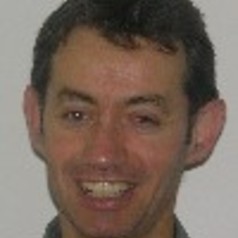
James Risbey
Researcher, Oceans and Atmosphere, CSIRO
James is a climatologist who has worked and published on climate variability and climate change issues in the US, the Netherlands, and Australia. His research is broadly concerned with the development and use of climate information for societal applications.
Less ![]()
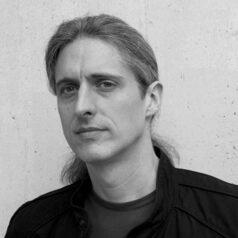
James Rose
Director of the Institute for Smart Structures, University of Tennessee
James Rose AIA is director of the Institute for Smart Structures and a distinguished Lecturer and adjunct assistant professor of the University of Tennessee College of Architecture and Design. A faculty member since 2004, James is the recipient of numerous awards for his teaching and built work including an Architect Magazine R+D Award, an AIA Innovation in Technology Award, and recognition as a Design Intelligence Most Admired Educator. In addition, he has co-authored papers on building technology with colleagues at UT and Oak Ridge National Laboratory. James is an architect, educator and industrial designer with a keen interest in the intersection of material and process. His research and practice focus on sustainability, design/build education and the architectural implications of emerging technologies. Recent regional projects with global significance include the world’s first net-zero 3D printed polymer building with ORNL and SOM and a collaboration with Local Motors Industries focusing on parametric design and additive manufacturing at architectural scale.
Less ![]()
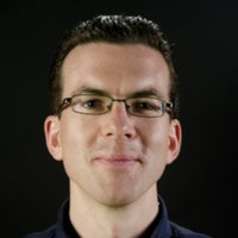
James Ryan
Senior Lecturer in Modern European (Russian) History, Cardiff University
I am a history of modern Russia and the Soviet Union, focusing on the relationship between Leninist ideology and political violence, and the intellectual history of Soviet state violence. I am the author of a monograph on violence in Lenin's political thought (Routledge, 2012), and I have published articles in academic journals such as Slavic Review and Historical Research.
Less ![]()
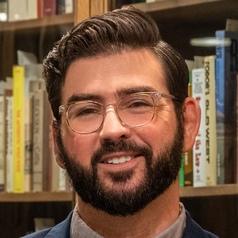
James Sandy
Assistant Professor of History, University of Texas at Arlington
Dr. James Sandy received his PhD from Texas Tech University in 2016 and currently serves as an Assistant Professor in the Department of History & Geography where he teaches courses in military and cultural history and serves as Internship Director. He is also the director of the Texas Veteran Project, an oral history initiative meant to collect and preserve the stories of America's veterans.
Less ![]()
- Market Data





















